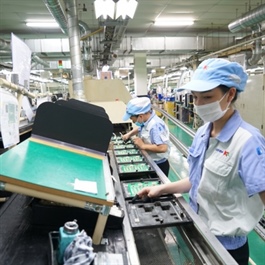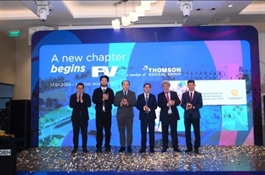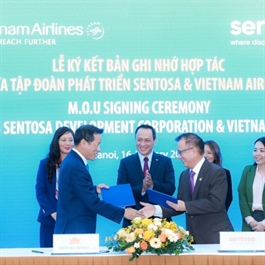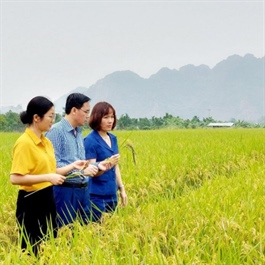Denmark helps Vietnam accelerate energy transition
Denmark helps Vietnam accelerate energy transition
Expertise from one of the world’s leading renewable producers is significant for Vietnam amid the need to have clear and transparent regulatory framework.
Denmark, a global renewable energy leader, is supporting Vietnam in speeding up its renewables plans towards net zero emissions by 2050.
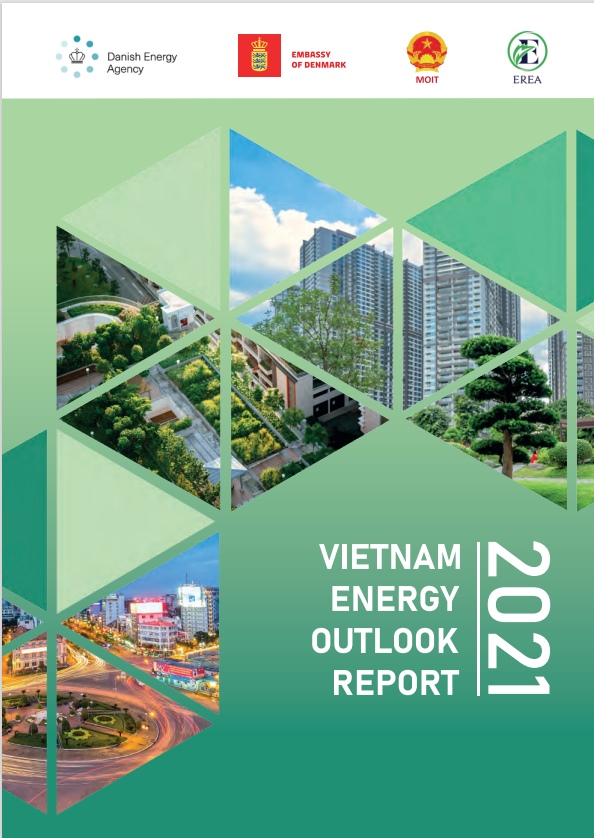
Vietnamese and Danish experts at the "Increased operational flexibility for coal power plants in Vietnam” conference held on July 28, 2023. Source: The Embassy of Denmark in Vietnam |
The view was shared by Rasmus Munch Sørensen, Long-term Adviser of the Danish Energy Partnership Program (DEPP) between Denmark and Vietnam.
The energy partnership between Denmark and Vietnam began in 2013 with the official launch of DEPP, signed by the Danish Energy Agency and Vietnam’s Ministry of Industry and Trade.
Currently, the two countries are working on the 3rd phase of this government-to-government program, which covers the period from 2020 to 2025.
“The focus of the partnership program is to share the Danish experiences with green transition and assist the Vietnamese Government, industries, and power system operators in securing an efficient, reliable, and quick green transition in line with the national target of net zero emissions in 2050,” Rasmus Munch Sørensen shared with The Hanoi Times.

Under the partnership with Denmark, the "Vietnam Energy Outlook Report" launched with several editions. |
Role model
Being a small country in the northern part of Europe with a population of six million people, Denmark has been working hard on making the green transition happen for the last 30 years to reduce the dependence on imported fossil fuels and greenhouse gas emissions.
This has led to today, where solar and wind in 2023 provided 64% of the annual electricity consumption. Even with this world record of share of variable renewable electricity, Denmark also keeps a very high standard of security of supply of more than 99.99% and electricity prices below average in Europe.
“Denmark is living proof that it is possible to transition to a very high share of renewable energy without jeopardizing the security of supply and affordability. Sharing the many technical and regulatory experiences with this green transition is a key priority for the Danish government,” Rasmus Munch Sørensen said.
In 1970, the Danish energy system was primarily based on fossil oil. Therefore, the country was hit hard by the oil crisis in 1973, which sparked ambitious political targets of diversifying and becoming less dependent on imported fossil fuels. They started developing long-term energy plans and investing in the development of a wide range of energy technologies. One of them was the modern 3-blade wind turbine design.
As such, the long-term energy planning, the wind turbine along with flexible thermal power plants and hydropower, and energy efficiency, are three cornerstones of the Danish transition, which are highly applicable to Vietnam.
This transition did not come overnight in Denmark. At first, there was a common understanding in the power sector of Denmark that wind power could only provide 5-10% of the electricity due to its uncontrollability. This number has gradually increased to 64% in 2023 and today, nobody is talking about an upper limit as ambitions are to even increase this significantly in the coming years.
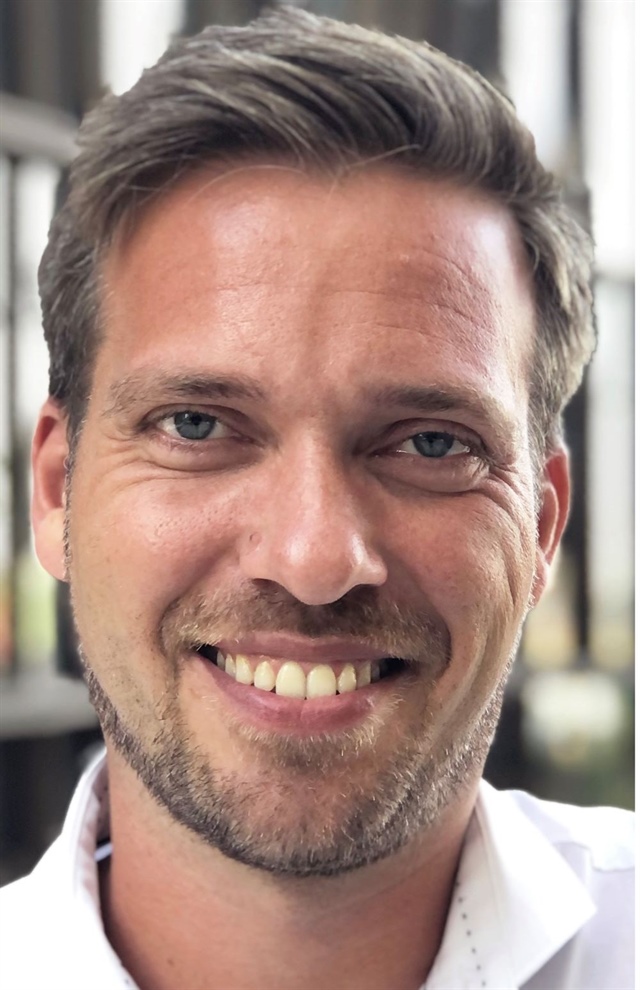
Rasmus Munch Sørensen, Long-term Adviser, the Danish Energy Partnership Program (DEPP) between Denmark and Vietnam. |
Lessons for Vietnam
In Denmark, the economic growth has been decoupled from the increase in energy consumption since the 1980s. This means that while the economy increased by around 2% on average per year, energy consumption has not increased at all in the same period.
The strong focus on energy efficiency policies, alongside a clear strategy for optimally using our power plants and the hydropower resources in our region, has played key roles in making the green transition possible in Denmark. These strategies are directly transferable to Vietnam as well.
Just as is the case in Europe and the US, it is realistic for wind and solar to shortly become the cheapest electricity production technology in Vietnam, making the transition cheaper.
For this to happen in Vietnam, Rasmus Munch Sørensen suggested three things he named “vital”. It’s to establish clear and transparent regulations regarding the approval processes, market conditions, and planning requirements for new projects. Another important step is to recognize the need for education and knowledge-sharing across the energy sector while ensuring that the green transition provides local employment to replace the jobs lost in the fossil fuel sector. Lastly, it is important for Vietnam to have clear and ambitious plans for retiring fossil-fueled power plants, so the necessary plans for replacing them with new renewables and stronger electricity lines can be prepared in time without jeopardizing the security of supply for consumers.
“These challenges are not special for Vietnam but have also been encountered in Denmark at various points of our own journey. While there is no simple solution to fix it all, one key lesson in Denmark has been that strong political leadership and determination towards the end-goal will lead to positive results, although many mistakes will inevitably be made along the way,” the expert stressed.
He affirmed: “In the end, consumers will benefit from the ambitious visions and large efforts; even if skeptics will challenge that it is expensive or even impossible to do in the short-term.”
Vietnam’s approval in 2023 of the Power Development Plan VIII (PDP8) has set the way for a number of the necessary changes required for reaching Vietnam’s goals, and Denmark is keen to continue to assist Vietnam on this challenging but necessary journey, Rasmus Munch Sørensen stated.
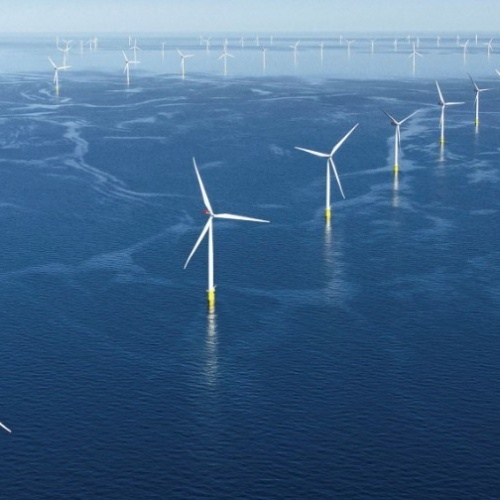
The Danish North Sea wind farm of Anholt. Source: Recharge |







